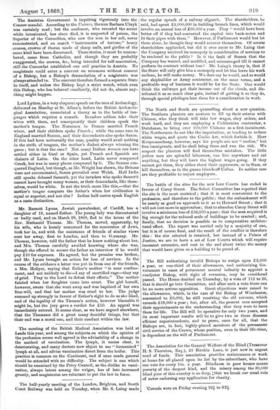Mr. Barnett Lyons, Jewish pawnbroker, of Cardiff, has a .daughter
of 19, named Esther. The young lady was discontented -or badly used, and on March 28, 1868, fled to the house of the Rev. Nathaniel Thomas. Mr. Thomas, moved, apparently, by his wife, who is keenly concerned for the conversion of Jews, took her in, and with the assistance of friends of similar views .sent her away, first to London, and then- to Germany. Mr. Thomas, however, told the father that he knew nothing about her, and Mrs. Thomas carefully avoided knowing where she was, though she offered to secure the father an interview if he would pay /10 for expenses. He agreed, but the promise was broken, and Mr. Lyons brought an action for loss of services. In the rouse of the evidence a letter was put in from one of the friends, a Mrs. Hollyer, saying that Esther's mother "is near confine-. anent, and not unlikely to die—I say of mortified rage—they say of grief. Pray to the Lord to defeat their efforts." The mother fainted when her daughter came into court. The girl herself, however, swore that she went away and was baptized of her own free-will, and that her mother was cruel to her. The judge summed up strongly in favour of Esther's right to do as she liked, and of the legality of the Thomas's action, however blamable it might be, but the jury gave a verdict for 150. An appeal was immediately entered. It seems clear, as we have argued elsewhere, that the Thomases did a great many deceitful things, but that their end was a moral one, and their conduct within the law.






























 Previous page
Previous page